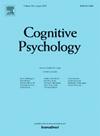机会成本下风险选择中的时间最优分配。
IF 3
2区 心理学
Q1 PSYCHOLOGY
引用次数: 0
摘要
在经济决策中,在做出一个好决策的考虑时间和其他有益活动的机会成本之间存在一种权衡。最近的理论描述了这个问题的证据积累的最佳策略如何取决于环境。如果两个选项之间的效用差是先验的,但不知道更好的选项的身份,决策者应该根据具有恒定决策边界的漂移扩散模型积累证据。如果事先不知道这种差异,则应该使用折叠边界。边界的确切位置取决于机会成本。在两个实验中,我们考察了人们是否能够自适应地调整他们的决策界限。参与者对有风险的彩票进行评级和选择,而我们改变了关于效用差异的先验信息。我们还通过对任务块施加时间限制来改变机会成本。我们发现,参与者在所有测试的条件下都使用崩溃边界,即使在那些恒定边界将是最佳的情况下也是如此。这意味着他们在选择过程中降低了证据的目标强度,即使他们不应该这样做。相比之下,参与者对机会成本很敏感,当选择时间更昂贵时,他们会更快地做出决定。总而言之,人们适应了机会成本,但不适应效用差异的先验信息。本文章由计算机程序翻译,如有差异,请以英文原文为准。
Optimal allocation of time in risky choices under opportunity costs
In economic decision-making there is a trade-off between deliberation time to make a good decision and opportunity costs of other rewarding activities. Recent theories describe how the optimal strategy of evidence accumulation for this problem depends on the environment. If the utility difference between two options is known a priori, but not the identity of the better option, decision-makers should accumulate evidence according to a drift diffusion model with constant decision boundaries. If this difference is unknown beforehand, collapsing boundaries should be used. The exact position of the boundaries depends on the opportunity costs. In two experiments, we examined whether people can adaptively adjust their decision bounds. Participants rated and chose between risky lotteries, while we varied prior information about the utility difference. We also varied opportunity costs, by imposing time limits on task blocks. We found that participants used collapsing boundaries in all examined conditions, even in those where constant boundaries would have been optimal. This means they reduced their target strength of evidence during the choice process, even when they should not. In contrast, participants were sensitive to opportunity costs, deciding faster when choice time was more costly. In sum, people adapted to opportunity costs but not to prior information about utility differences.
求助全文
通过发布文献求助,成功后即可免费获取论文全文。
去求助
来源期刊

Cognitive Psychology
医学-心理学
CiteScore
5.40
自引率
3.80%
发文量
29
审稿时长
50 days
期刊介绍:
Cognitive Psychology is concerned with advances in the study of attention, memory, language processing, perception, problem solving, and thinking. Cognitive Psychology specializes in extensive articles that have a major impact on cognitive theory and provide new theoretical advances.
Research Areas include:
• Artificial intelligence
• Developmental psychology
• Linguistics
• Neurophysiology
• Social psychology.
 求助内容:
求助内容: 应助结果提醒方式:
应助结果提醒方式:


